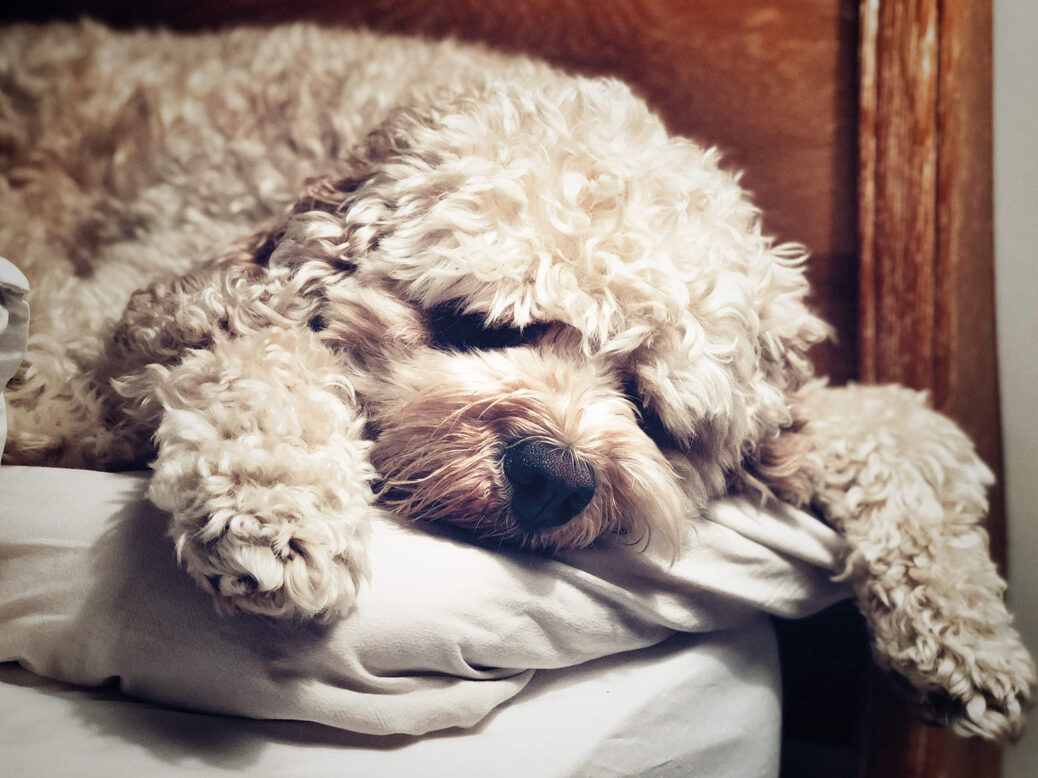
Many years ago, I had a girlfriend who lived in a state of frenetic cheerfulness, bordering on actual chaos, with a pudgy and rather clumsy Labrador cross named Hector. Not having grown up with dogs, I’d never seen the attraction of such companions (especially after a river walk), but there was one aspect of Hector’s existence that fascinated me – and that was the sheer exuberance and strange beauty of his dreaming.
I say dreaming here rather than dreams because, while I could observe the sometimes hilarious, sometimes quite touching outward signs of Hector’s dream life, I was naturally excluded from the visions themselves. My girlfriend insisted that he was merely “chasing rabbits”, but how could we know? Hector was a daft beast, but he exulted in any manner of thing: chasing rabbits, it goes without saying, but also certain forms of music (Berlioz was a favourite), and I shall always remember watching him run out into new snow and, suddenly quietened by it all, stop to sniff at the thick bright flakes with a faraway, thoughtful expression, like a dog who has just understood the nature of ozone.
So when we watched him sleep, his nose twitching, mind racing behind his eyelids, tail thumping on the floor, he could have been dreaming of anything, from a wild hunt through the snowy woods to a Berlioz symphony, or some memory of puppyhood that a human observer would accuse him of being unable to form.
I have been thinking about the purpose of dreams a good deal recently, mostly for personal reasons. As my own problems with sleep have become more varied and pressing, even critical, I have been obliged to accept the long-term damage that my health is suffering from what had almost seemed a perverse blessing in my youth (insomnia is no fun, but at the very least, a sleepless person reads a good deal, and perhaps thinks more exhaustively than some about what he or she has read). As painful as it can be to sit bug-eyed in a dull lecture after three hours of almost no sleep, I have nevertheless always known that, if I ever have a truly original idea, it will come in the wee small hours somewhere, when everyone else is in bed – for sometimes the sleepless get to dream awake and that, in the moment of revelation, can feel like gold dust. However, insomnia has given way to a whole range of sleep disturbances and, during a recent set of tests, I was brought back to Hector and his ebullient dream life.
We know much more, these days, about the sometimes fantastical abilities that animals possess when it comes to sleep, but it seems to me that the more we know, the more we have yet to discover. What is a large cat doing when, after a major kill, it takes itself off to sleep for three days at a time? Dreaming, or merely digesting? What function do such dreams play, in what one book about sleep calls “mental hygiene”?
Contrast this with the way some birds or fish seem able to sleep on the go, or to flick back and forth between sleep and waking in ways that would be torture for us. Or those creatures, such as hibernating bears, who “sleep” for whole seasons. While it would be wrong to anthropomorphise Hector’s dreaming, I do believe that we could make some vital discoveries about ourselves (less accomplished sleepers now than ever before) if we studied sleep in animals more systematically – and in a climate of open enquiry, rather than dismissing the inner life of our fellow dreamers.
This article appears in the 12 Sep 2018 issue of the New Statesman, The return of fascism





